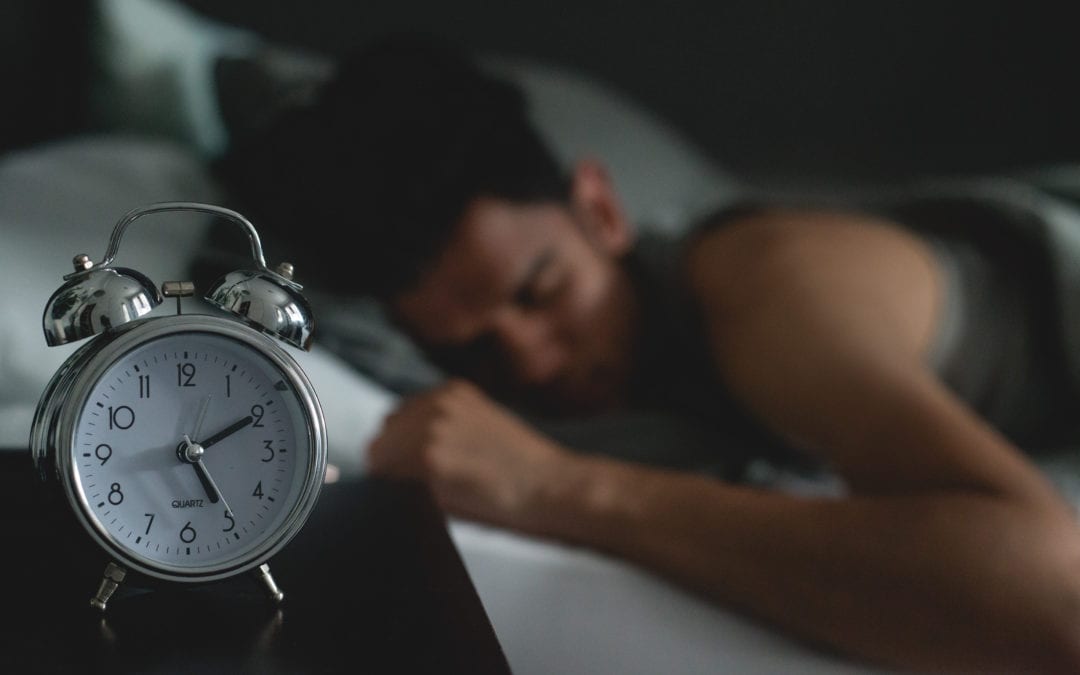Ready to spring forward? For most of us, the time change makes our already tired bodies even more groggy. In our fast-paced world, it’s difficult to get enough sleep even without losing an hour. Are there ways to get the rest you need? Thankfully, the answer is usually yes. The following tips to get better sleep can help you fall asleep, stay asleep and feel more rested during the day.
Create a Restful Sleeping Environment
Make your sleeping environment dark, cool and quiet to promote better sleep. Use heavy curtains or an eye mask to block out the light. Keep the temperature in your bedroom cool; ideal temperatures for sleep are between 60 and 75 degrees. Create a quiet space by using ear plugs, a fan or a “white noise” machine to block outside noise. Make sure you have plenty of pillows and a supportive mattress to keep you comfortable throughout the night.
Reserve the Bedroom for Sleep and Sex
Part of creating a restful sleep environment is reserving it for sleep. If you commonly bring work materials or your laptop into the bedroom, your mind begins to associate the two. Try to limit your bedroom activities to sleep and sex, and keep computers, work materials and TVs out of the room. This creates a stronger mental association between the bedroom and sleep.
Establish a Bedtime Routine
Kids aren’t the only ones who benefit from a bedtime routine. Although as adults we usually stop going through a regular routine at night, establishing one can actually help you sleep better. Begin the transition from wakefulness to sleep about an hour before bedtime. Focus on relaxing activities and avoid doing or thinking about things that are stressful or stimulating. Good examples of relaxing nighttime activities include:
- Taking a bath
- Reading a book
- Relaxation exercises
- Listening to quiet music
- Easy stretching
- Listening to a book on tape
Set a Consistent Sleep Schedule
Getting up and going to bed around the same time every day helps the body develop a consistent sleep rhythm as it learns to expect sleep at a certain time. Stick as closely as possible to the same routine, even on the weekends. Try to get up on time even if you didn’t sleep well or had a late night; it’s better to make up sleep with a short nap than sleeping in. Avoid the snooze button; it’s tempting, but actually hurts more than helps. Set your alarm for the time you need to get up and limit yourself to no more than one snooze.
Avoid Stimulants that Interfere with Sleep
Caffeine is a big culprit here. It acts as a stimulant that makes your body more awake and interferes with sleep. It’s best to limit caffeinated beverages to the morning, but at least avoid them in the four to six hours before bed. Coffee, tea, cola, chocolate and even some pain relievers contain caffeine. Nicotine is another common stimulant, so smokers should avoid tobacco products as bedtime approaches.
People often think that a little alcohol before bed will encourage sleep. The truth is that alcohol may make you initially drowsy, but it acts as a stimulant and can disrupt sleep during the night. Drinking before bed makes you more likely to sleep lightly and wake up more often. Stick with no more than one or two drinks per day and avoid drinking during the three hours before going to bed.
Go to Sleep When You’re Tired
Trying to fall asleep is frustrating, whether it’s at bedtime or after waking up during the night. If you don’t fall asleep after 20 minutes, get up and go in the other room to do something relaxing until you are tired. Keep the lights dim to avoid stimulating your internal clock.
Work with Light
Natural light is part of how our bodies regulate the sleep-wake cycle. Try to get some bright sunlight as soon as possible after waking up and during breaks throughout the day. Just as important as getting light during the day is avoiding bright light at night. Avoid bright screens and TVs during the hour or two before bedtime and dim the lights if possible.
Take an Early Nap
If you didn’t sleep well or went to bed late, napping can be a great way to help make up some sleep. Just remember to be smart about it because napping can also interfere with sleep. Take your nap early in the day, morning or early afternoon is best, and keep it around 15 to 20 minutes.
Watch what You Eat
Heavy, late-night meals can trigger indigestion and difficulty sleeping. Eat dinner several hours before going to bed. If you get hungry later in the evening, try a light snack.
Balance Fluid Intake
Staying hydrated is important, but too much fluid before bed can mean multiple trips to the bathroom. In the evening, drink enough to not wake up thirsty, but not so much that you wake up during the night to run to the bathroom.
Exercise Regularly and Early
Regular exercise is a great way to promote healthy sleep; it’s also a stimulant that makes you feel more alert. Include regular exercise as part of your routine, but finish your workout at least three hours before going to bed.
Seek Help when Needed
If you stick with these tips and still struggle to sleep well, there may be a more serious sleep problem causing your restlessness. Talk to a doctor about your sleep difficulties to see if there is an underlying cause.
Sleep is important for all of us, but too often we don’t make it a priority. Use these tips to establish healthy sleeping habits that help you get the good night’s sleep you need.

